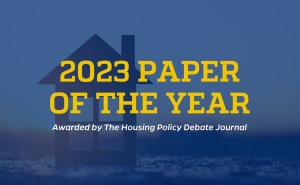Summer Institute in Data to Policy
Registration now open for courses in strategic leadership, youth engagement, policy analysis, resource management, and evaluation of programs and/or research.

The Department of Population, Family and Reproductive Health 2024 Summer Institute courses are now open for registration. These six courses, held over two weeks in June, are available primarily online and can be taken as credit or non-credit courses. Courses are designed to enable participants to:
- Assess health and health determinants using data and scientific research
- Develop and advocate for evidence-based policies to respond to population health needs
- Discuss policy impact and methods of evaluation to assure implemented policies and programs achieve their purpose
Course Offerings and Schedule
380.601.79 Critically Evaluating the Science for Policy and Practice
2 credits, June 3-14, 2024 | M/W/F - 10:00 a.m. - 12:00 p.m. | Virtual course
380.607.49 Youth Voice in Public Health
1 credit, June 6-13, 2024 | Th - 10:00 a.m. - 12:00 p.m. | Hybrid course with both in-person (.11) and virtual (.49) sections
380.706.79 Using Data to Inform Family Planning Policies
2 credits, June 4-13, 2024 | T/Th - 8:00 a.m. - 9:50 a.m. | Virtual course
380.708.79 Strategic Leadership Principles and Tools for Health System Transformation in PFRH
2 credits, June 3-14, 2024 | M/W/F – 7:00 a.m. - 9:20 a.m. | Virtual course
380.709.79 Introduction to Program Evaluation in PFRH
1 credit, June 4-11, 2024 | Tu – 10:00 a.m. - 12:00 p.m. | Virtual course
552.622.89 Creating, Implementing and Monitoring Budgets for Projects and Programs
1 credit, June 3-14, 2024 | Asynchronous virtual course
Read Detailed Course Descriptions | Register Now
"Youth Voice in Public Health capitalizes on the strengths of youth engagement, diversity, collaboration, skill development, and long-term impact, aiming to create a more inclusive and effective approach to public health initiatives."
"I really enjoyed Introduction to Program Evaluation in PFRH. I enjoyed the small group setting and informal nature of the class, which allowed for good discussions and opportunities to ask questions. The instructor provided helpful feedback throughout the sessions and especially when we were sharing our in-class exercises."
"Critically Evaluating the Science for Policy and Practice offered practical applications and sample critiques, allowing us to understand how theoretical knowledge can be applied in the critical evaluation of different research. This enhanced our understanding and equipped us with skills relevant to the field."





